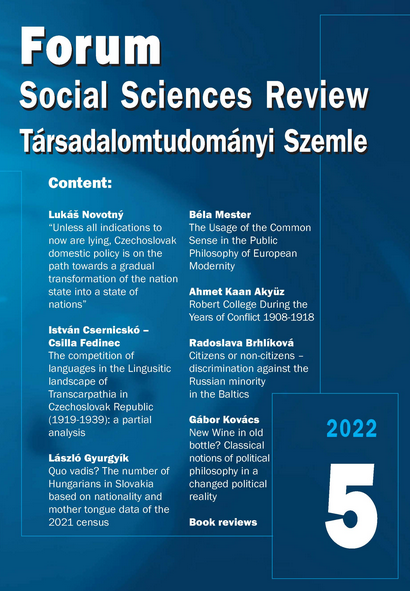The Usage of the Common Sense in the Public Philosophy of European Modernity
The Usage of the Common Sense in the Public Philosophy of European Modernity
Author(s): Béla MesterSubject(s): Philosophy
Published by: Fórum Kisebbségkutató Intézet
Keywords: the common sense; Hans-Georg Gadamer; Hegelian attack against the common sense; Hungarian Controversy on Kant; Hungarian harmonistic philosophy; Scottish school of the common sense
Summary/Abstract: An answer to the change of modern scholarly communication’s structure was the British common sense school, which received significant reception in Europe. This paper offers an overview of the key-term of the common sense in different cultural environments, including Scottish thought, German philosophy, and the history of Hungarian philosophy; the connection of the anti-Kantians and the Scottish school in the Hungarian Controversy on Kant (1792–1822); and the school of Hungarian harmonistic philosophy in the middle of the 19th century. An inevitable element of the continental reception of the common sense tradition is the interpretation of Hans-Georg Gadamer in the initial chapters of his Truth and Method. The present paper intends to rethink Gadamer’s analysis, based on the recent results of the history of philosophy and on the experiences of the historiography of Hungarian philosophy.
Journal: Fórum Társadalomtudományi Szemle
- Issue Year: XXIV/2022
- Issue No: 5
- Page Range: 49-62
- Page Count: 14
- Language: English

